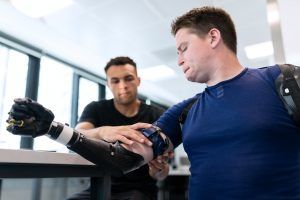In the ever-evolving landscape of technology, colleges play a pivotal role in shaping future tech talent. With the growing demand for skilled programmers, data scientists, and IT specialists, higher education institutions are uniquely positioned to bridge the gap between academic knowledge and practical tech skills. This article explores the various strategies colleges adopt to nurture tech talent, ensuring students are proficient in coding and equipped with the skills needed to thrive in the tech industry.
Emphasizing Practical Skills in Curriculum
The first and foremost approach is revamping the traditional curriculum to include more practical, hands-on learning experiences. Colleges are increasingly recognizing the importance of real-world application over theoretical knowledge. This means integrating coding projects, hackathons, and collaboration with tech companies into the coursework. Additionally, the availability of essays for sale can be a positive tool for students looking to enhance their understanding of complex subjects, as these services provide well-researched and professionally written college papers that complement their academic learning. Such an approach helps students learn programming languages and understand how to apply these skills to solve problems. It’s about moving beyond the confines of textbooks and encouraging students to ‘think code’ in everyday scenarios.
Building Industry Connections
Another significant step is fostering strong connections with the tech industry. This can be in the form of guest lectures, internships, or partnership projects. By bringing industry professionals into the classroom, students gain insights into the tech world’s current trends, challenges, and expectations. Internships, in particular, are a golden opportunity for students to experience the work environment, understand team dynamics, and get a taste of real-world problem-solving. This industry-academia collaboration enriches the learning experience and provides a networking platform for students, which can be invaluable in their future careers.
Encouraging Diverse Perspectives
Diversity in tech is not just a buzzword; it’s a necessity. Colleges ensure that students from varied backgrounds, cultures, genders, or educational levels are encouraged to pursue tech careers. This commitment includes offering scholarships and mentorship programs, creating inclusive learning environments, and even supporting write my paper services for students who need extra help in their academic journey. Such do my assignment services are crucial in leveling the playing field, allowing all students to excel academically and focus on their tech aspirations. Diversity brings different perspectives, ideas, and approaches to problem-solving, which is essential for technology innovation. Colleges contribute to a more inclusive and creative tech industry by nurturing a diverse pool of tech talent.

Focusing on Soft Skills
Technical skills alone are not enough in today’s tech landscape. Colleges are now placing equal emphasis on soft skills such as communication, teamwork, and problem-solving. Coding is often a collaborative effort, and communicating ideas and working in a team effectively is crucial. Group projects, presentations, and active learning methodologies nurture these soft skills. A coder who can articulate their ideas clearly and work well in a team is a valuable asset in any tech company.
Promoting Entrepreneurial Mindset
Finally, encouraging an entrepreneurial mindset and coding challenges among tech students is becoming increasingly important. Colleges are setting up incubators and innovation hubs where students can work on their tech ideas and turn them into startups. This gives students a practical platform to apply their coding skills and fosters creativity, risk-taking, and business acumen. The aim is to transform coders into innovators and entrepreneurs, driving forward the tech industry with their fresh ideas and ventures.
Final Thoughts
Colleges are not just educational institutions but crucial breeding grounds for the next generation of tech talent. By focusing on practical skills, industry connections, diversity, soft skills, and entrepreneurial mindset, colleges are preparing students not just to enter the tech world but to lead and innovate. The journey from classrooms to coding is not just about learning a programming language; it’s about shaping individuals ready to tackle the challenges of the future tech landscape.
Bio
William Fontes is an accomplished writer and technology enthusiast interested in the intersection of education and tech innovation. His articles often explore the dynamics of nurturing tech talent in academic settings, focusing on practical strategies and trends in the tech industry. With a background in technology and education, William provides insightful perspectives on how colleges can better equip students for the rapidly evolving tech landscape. His writing style is known for its clarity and ability to translate complex tech concepts into accessible knowledge for a broad audience.






 Your total news and information resource for all things Science, Technology, Engineering / Mathematics, Art, and Medicine / Health.
Your total news and information resource for all things Science, Technology, Engineering / Mathematics, Art, and Medicine / Health.
Leave a Comment